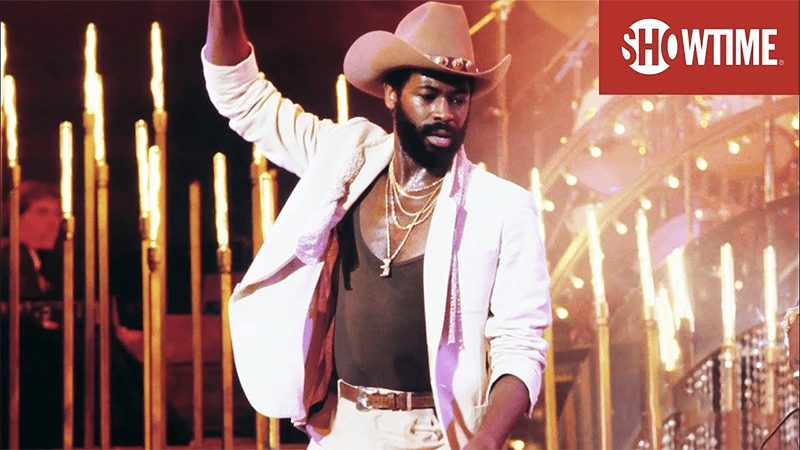
We would be amiss to kick off African American Music Appreciation Month without mentioning the new documentary Teddy Pendergrass: If You Don’t Know Me. In addition to interviews with record executives and other people in the industry, the film features interviews with his family, including his 100-year-old mother. The documentary tells of the rise of Teddy Pendergrass whose talent, physique, and abundant charm solidified him as equal parts iconic voice and pervasive sex symbol. While the heights he ascended already made him prolific there is no telling what additional doors he would have burst through in the entertainment industry had he not become paralyzed from the chest down from a car accident in 1982.
Being born in 1987, all I knew of Teddy P were a few of his songs and his disability. However, as as adult watching this documentary, I became transported back into time where “Teddy was the guy other men wanted to be like and women wanted.” Through learning of his fierce independence instilled in him by his mother, his entrepreneurial foresight, and his bigger-than-life stage presence, I too, fell in love with the Teddy Bear and could imagine myself screaming in the front row of his concerts. Here are a few things I learned from watching.
- He had is own jeans! Long before Nelly’s Apple Bottoms, there were Teddy’s Celebrity Jeans complete with a commercial featuring the heartthrob. This was a part of a larger plan to capitalize on Teddy’s sex appeal. In addition to fashion the star held “For Women Only” concerts advertised in the paper with a number you could call to hear Teddy greeting you with a personal invitation to see him perform.
2. He highlights something that appears to be missing from today’s music – sensuality, and to be blunt, begging. In fact, his most popular ballads are actually soulful pleads with women to “come on and go with me,” “close the door,” “turn off the lights” and “give it up.” As my friend commented, Teddy is a man not afraid to perform for women, unlike a lot of male performers today who feel a need to perform masculinity for one another. This distinction makes a huge difference in his stage presence, where through his unabashed acceptance of his status as a sex symbol, he owns his sensuality through his voice and movement. Women were so crazed over him that as mentioned in the documentary they would dress as maids and hide in the hotel suite, waiting for him after the show. One deranged woman snuck by security with a large butcher knife, claiming, “If I can’t have you, then no one will.”
3. His accident may not have been an accident at all. The way the directors frame the narrative around Teddy’s devastating crash within the ruthless nature of the music industry leads audiences to believe that it was either a ploy by former band member Harold Melvin or the Philadelphia police. The film posits that Teddy’s split from the Bluenotes was fueled by a lack of equal compensation for band members and a sort of theft. At the last minute, Melvin changed the name of the group to add his name first. With Teddy singing lead for the majority of the songs, listeners naturally thought that he must be Harold Melvin; essentially Harold attempted to “steal” Teddy’s booming baritone. When Teddy announced his departure Melvin attempted to end his career before it started, asking record companies and industry people not to work with him. At the time of his crash Teddy was suing the Philadelphia police for $500K due to harassment; jealous of his wealth and status, they would often pull him over and search his green Rolls Royce. With the murder of his manager turned girlfriend, Taaz Lang, and friends reports of his other cars having had their brake lines cut, it would not be surprising that he too was the victim of foul play.
4. Teddy sacrificed a lot to break down barriers. Superstar R&B singers and rappers have Teddy to thank in part for serving as a model for mainstream success across industries. His desire to strike out on his own caused a lot of issues for him in what has been described as a wild west of an music industry. Nevertheless, he forged a path for himself and lived fully into his sexuality, being, and talent. And he potentially paid one of the ultimate prices.
In short, Teddy was a man unafraid to be himself, unafraid to bask in the confidence of his unparalleled voice. He was himself fully, which makes watching all of that change with his sudden paralysis, extremely difficult. Teddy has taught me to unapologetically express my sensuality and sexuality, own my talent and indulge in the fruits of my labor.





